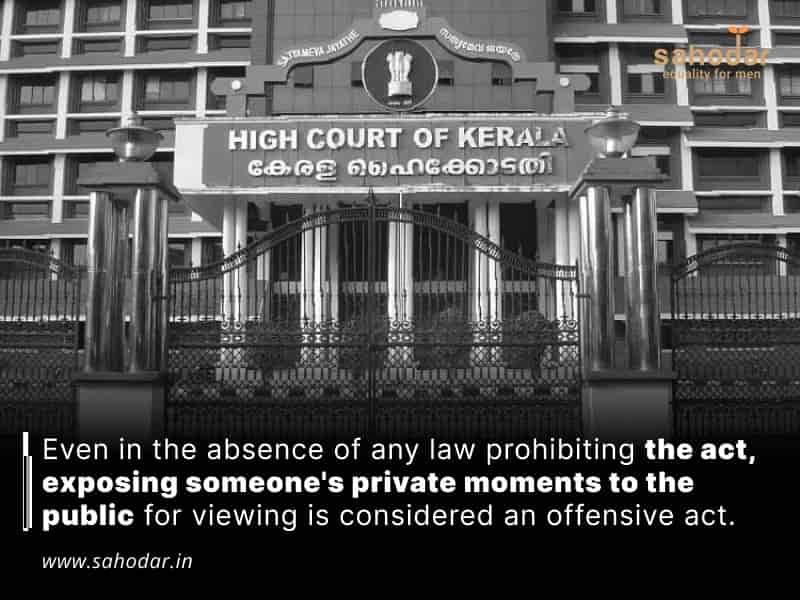In this particular case, the second respondent had lodged a complaint against her former employer, T.P. Nandakumar, who was operating an online news channel called ‘Crime Online’, alleging that he had forced her to record herself in the nude so that he could create a morphed video of a female state minister.
Following the complaint, a case was filed under the Criminal Law and Nandakumar was apprehended. In response to Nandakumar’s arrest, the appellants, who also worked in an online channel called ‘Bharath Live’, posted news articles containing defamatory comments about the second respondent and portrayed her as a promiscuous woman.
These news pieces included video clips from the second respondent’s private moments. It was known that the second respondent belonged to a Scheduled Tribe community, when these articles were published.
The bench was presented with the question of whether the publication of video content of another person’s private moments would fall under the offences defined in the PoA Act.
The High Court held that the act of making private moments public is inherently offensive, regardless of the absence of specific laws prohibiting it. No entity, whether it is the media or government agencies, has the right to intrude into the private lives of citizens without a valid reason.
The personal motives of media personalities or their supposed pursuit of truth and justice do not justify violating the privacy of individuals. Every person has the right to carry out their actions in private and conduct their life without being monitored.
The bench expressed its disappointment regarding the tendency of some online news channels to prioritize publishing sensational and scandalous content over actual news. Regrettably, some members of the public also consume such material. Without any effective measures to control this problem, it is up to those news channels to reflect on their actions and determine whether the actions of a few are undermining the credibility of the fourth estate, which is an influential pillar of our democratic society.
The High Court stated that the appellants were aware of the 2nd respondent’s Scheduled Tribe status and their publication of news and videos that aimed to insult or abuse her was enough to constitute offenses under the PoA Act. The argument that there was no material or circumstance to support such offenses was rejected by the court, and therefore, the bar under Section 18 of the Act against pre-arrest bail applied. The Special Court’s decision on this matter did not require any interference, and thus, the appeal was dismissed by the bench.
Source: https://lawtrend.in/publication-of-another-persons-private-moments-for-public-viewing-is-an-offensive-act-even-if-there-is-no-law-preventing-such-action-kerala-hc/

